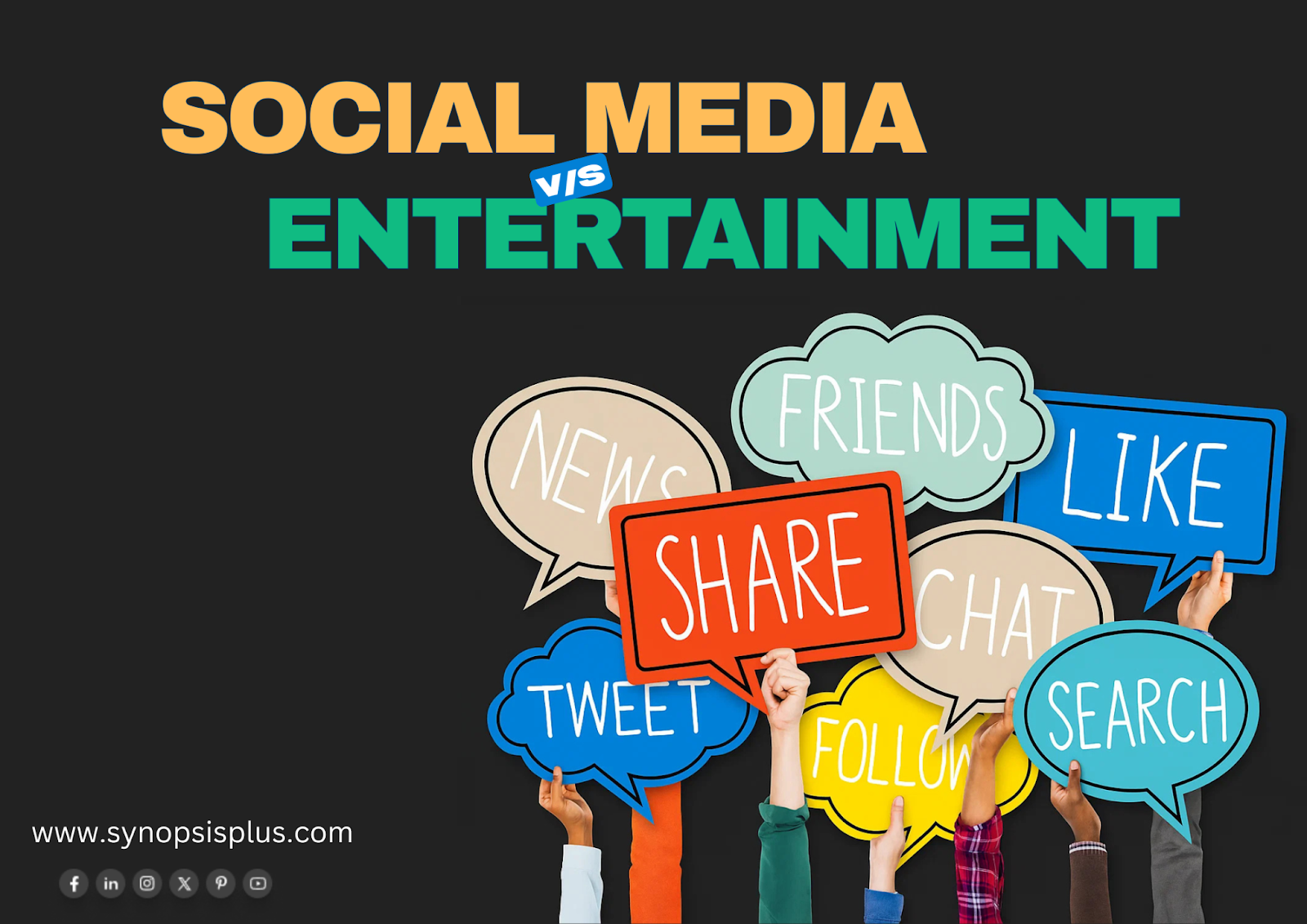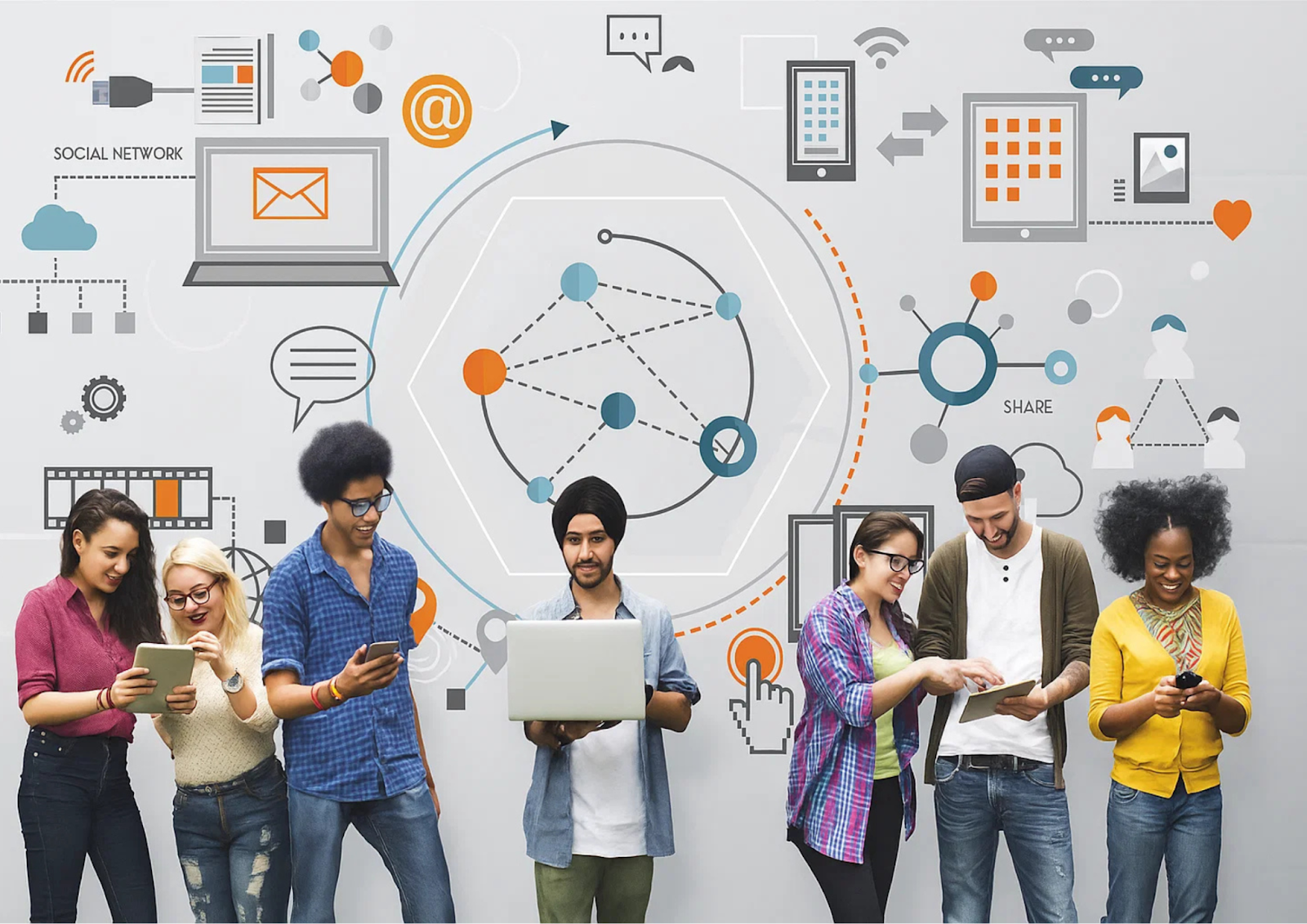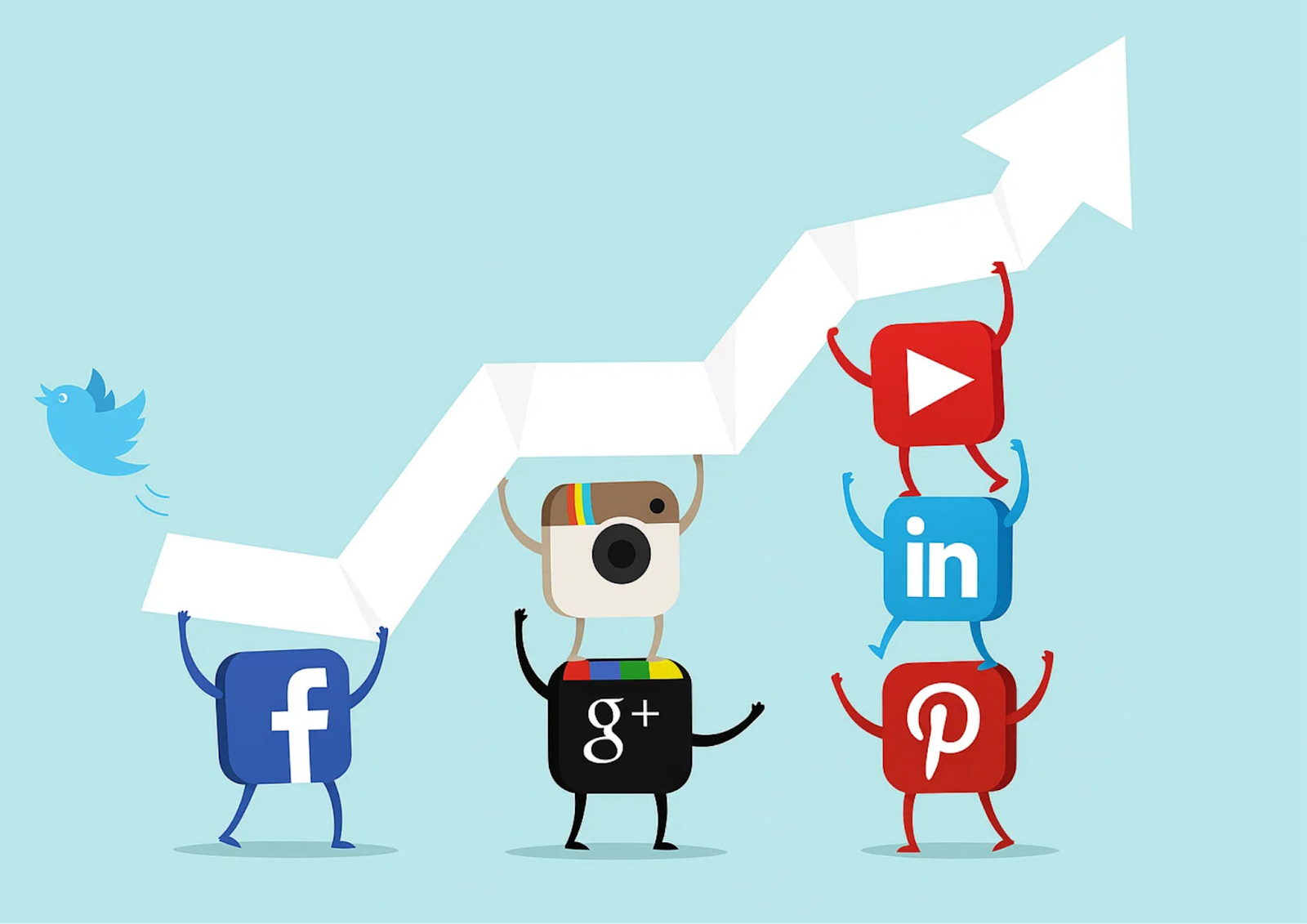
The Impact of Social Media on the Entertainment Industry: Trends You Should Know
Social media isn’t just “marketing” anymore. It’s where people find shows, discover music, and talk about it together. The entertainment world is changing faster than ever, and social media is leading the way. What once started as a way to share photos or chat with friends has now become a major part of movies, music, TV, and pop culture. Platforms like TikTok, Instagram, YouTube, and Twitter are where new trends start, stars are discovered, and fans connect directly with their favorite creators.
In 2025, social media isn’t just helping the entertainment industry, it is the entertainment industry. Here are the top trends driving this big change.
1. Social Media as the New Entertainment Powerhouse
Gone are the days when entertainment meant turning on the TV or going to the cinema. Now, people open TikTok, scroll through YouTube Shorts, or join a live stream for instant fun. Social media has become the main stage where entertainment happens in real time.
What makes it special is that anyone can create and share content instantly with the world. From funny clips and dance trends to behind-the-scenes moments and live shows. Social media gives us short, interactive content that old media can’t match.
2. The Creator Economy: Everyone Can Be a Star
Social media has totally changed what it means to be “famous.” You don’t need a Hollywood agent anymore, just a phone, creativity, and effort. Creators on TikTok, YouTube, and Instagram become popular by being real and relatable. They share their daily lives, talk to followers, and work with brands.
These new “everyday stars” feel more genuine, and people love that. Now, brands and media companies work with creators to reach audiences quickly and easily.
3. Streaming Meets Social Media: New Opportunities and Challenges
Streaming platforms like Netflix, Disney+, and Amazon Prime still rule long-form entertainment, but social media is catching up fast. People now spend hours watching short, free, and addictive videos made just for them. To stay competitive, studios utilize social media to promote their shows, share clips, and even release short spin-offs.
These bite-sized teasers build hype and keep audiences engaged between big releases. Now, we live in a mix of both worlds—where high-quality shows meet the fast, viral power of social media.
4. Real-Time Engagement and Community Building
Social media turns entertainment into a two-way experience. Fans don’t just watch, they comment, share, react, and even influence the storylines through trends and feedback.
Live-streamed concerts, movie watch parties, and interactive Q&A sessions help creators to stay close to their fans. Every like, share, and hashtag builds excitement and loyal communities around shows, music, or creators. This real-time interaction helps entertainers learn what fans want and give it to them quickly.
5. AI’s Role in Shaping Entertainment on Social Platforms
Artificial Intelligence (AI) plays a massive role in today’s entertainment ecosystem. Platforms like TikTok and YouTube use AI-driven algorithms to show users exactly what they want to see, keeping engagement high. But AI isn’t just behind the scenes, it’s now part of the creative process. From writing video scripts and editing clips to generating music or special effects. AI tools are making content creation faster and more accessible. In 2025, creators are using AI to experiment, innovate, and reach audiences in ways that were impossible just a few years ago.
6. Monetization and New Revenue Streams
Social media has become a serious money-maker for both creators and entertainment companies. Revenue now comes from multiple sources—brand deals, ad revenue, subscriptions, merchandise sales, and even digital “tips” or gifts from fans. Platforms like YouTube, TikTok, and Instagram are also offering built-in monetization features, helping creators turn hobbies into full-time careers. For the industry, this means more independence, creativity, and competition. Small creators can now earn alongside big stars, and everyone has the opportunity to grow a loyal audience.
7. Challenges: Negativity and Too Many Choices
Of course, social media isn’t all sunshine. The same platforms that create fame can also spread negativity and criticism instantly. One viral post can make or break a career overnight. Brands and creators need to manage feedback carefully, respond authentically, and handle online conversations with transparency.
Another big challenge is audience fragmentation. With so many platforms and types of content. It’s harder to keep viewers focused on one show or the creator. The key is to stay adaptable, consistent, and creative across multiple platforms.
8. Social Responsibility and Sustainability in Entertainment
Audiences today care deeply about social and environmental issues. They want entertainment that feels responsible and inclusive. Social media amplifies these values, pushing studios and creators to promote sustainability, diversity, and ethical storytelling.
When brands highlight positive actions like eco-friendly productions or charity initiatives, they build stronger emotional connections with their followers. In 2025, being socially conscious isn’t optional it’s part of staying relevant.
9. What This Means for Audiences and Creators

For audiences, social media makes entertainment more accessible and engaging than ever. You can watch your favorite creators, chat with celebrities, and even shape trends, all from your phone. For creators and companies, success means embracing social media as the heart of storytelling and marketing. It’s no longer enough to post occasionally; the best entertainers are combining data, creativity, and authenticity to stand out in a crowded digital space.
The most successful creators understand their audience, experiment with new formats, and stay genuine. That’s what keeps people watching.
Advantages of Social Media in the Entertainment Industry

- Celebrities and creators can talk directly to their audience through comments, live chats, and messages.
- Movies, songs, and shows can reach millions of people without spending much on advertising.
- Content can be shared and watched anywhere in the world instantly.
- Many new stars get famous on platforms like TikTok, YouTube, and Instagram.
- Likes, shares, and comments help creators know what the audience enjoys.
- Artists can try new ideas and make different kinds of content easily.
- Fans can react, share, and join live events as they happen.
- Social media offers ways to earn through ads, sponsorships, and fan support.
- Fans can come together to form groups and communities around their favorite shows or artists.
- Social media helps set new trends in music, fashion, and entertainment faster than ever before.
Bottom Line
Social media has completely transformed the entertainment industry from how we discover new talent to how we interact with our favorite stars. It’s breaking barriers, reshaping fame, and giving power directly to the people who create and consume content. In 2025, entertainment is more interactive, personal, and diverse than ever before. Whether you’re a fan, a creator, or a business, knowing these trends will help you succeed in this new world where social media and entertainment go hand in hand.